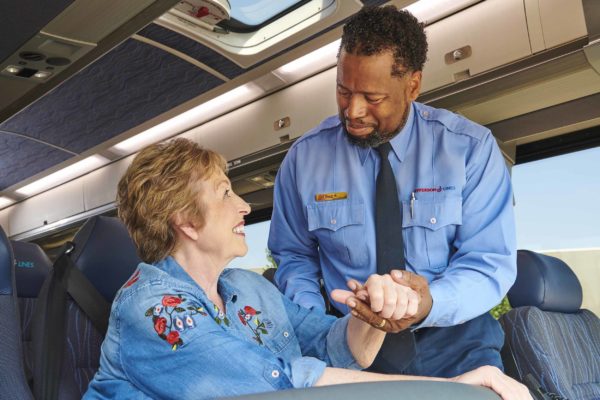Celebrating 100 Years

“Now, the motor bus is an institution and has arrived to stay. It is an indispensable part of modern transportation.”
Edgar F. Zelle (June 4, 1926)
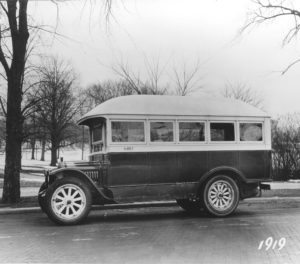 Jefferson Lines has been Your #1 Bus Experience for 100 years. As a major transportation pioneer of the 20th century, founded in 1919, Jefferson has put its stamp in history as a market leader, consistently committed to exceeding the expectations of its passengers and implementing the most modern, reliable, and innovative form of transportation.
Jefferson Lines has been Your #1 Bus Experience for 100 years. As a major transportation pioneer of the 20th century, founded in 1919, Jefferson has put its stamp in history as a market leader, consistently committed to exceeding the expectations of its passengers and implementing the most modern, reliable, and innovative form of transportation.
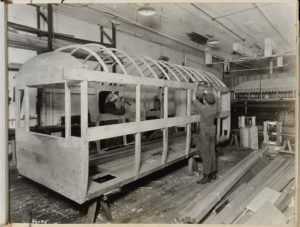
As automobiles were slowly being introduced to the general public, Jefferson Lines recognized the impact that diverse public transportation within major and rural communities could have in Minnesota and beyond. Through its innovation and resourcefulness, Jefferson Lines was able to transform simple truck chassis into 13 passenger motor coaches, which carried passengers between their locations in travel times only talked about prior to buses.
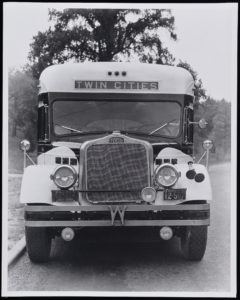 Jefferson believed that every community deserved convenient and affordable transportation that exceeded their expectations and allowed them freedom in travel. After just a few short years, this vision had come to fruition. It was with the help and support of its committed employees as well as the company’s determination and ingenuity that Jefferson achieved the second largest bus company of the early 1900’s.
Jefferson believed that every community deserved convenient and affordable transportation that exceeded their expectations and allowed them freedom in travel. After just a few short years, this vision had come to fruition. It was with the help and support of its committed employees as well as the company’s determination and ingenuity that Jefferson achieved the second largest bus company of the early 1900’s.
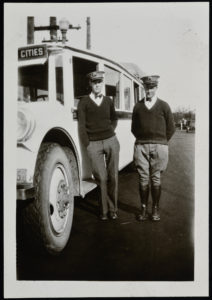
Despite a growing number of bus competitors, railroad companies, and regulations at state and federal levels; Jefferson persevered and created a permanent and highly respected form of transportation for every community and the persons within it. Jefferson’s love for transportation, pledge to its employees, and values in integrity and stewardship was indisputable as Jefferson drove into the 21st century.
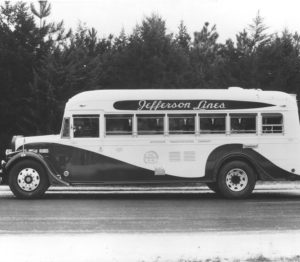 With new challenges and opportunities welcoming Jefferson into the early 2000’s, the original Jefferson entrepreneurial spirit that defined the company in years past, remained strong. Jefferson continued to grow as an independent bus company with a focus on convenience and value by connecting their communities, their civic institutions and their transportation partners.
With new challenges and opportunities welcoming Jefferson into the early 2000’s, the original Jefferson entrepreneurial spirit that defined the company in years past, remained strong. Jefferson continued to grow as an independent bus company with a focus on convenience and value by connecting their communities, their civic institutions and their transportation partners.
Jefferson’s strong reputation continues to be founded in the belief that every community and every customer deserves convenient, and affordable transportation that exceeds their expectations. It’s by this ongoing commitment, that Jefferson Lines is proud to be Your #1 Bus Experience for 100 years.

Start Driving
If you have a knack for exceptional customer service and want to be a part of an industry leading team, Jefferson Lines is the perfect fit for your driving future. Team members receive competitive pay and great benefits in a fun, friendly working environment.
Apply Today50 Million +
Passengers Served
1,000 +
Communities Served
300 +
Jefferson Employees
Jefferson Lines History
For centuries, Jefferson Lines has been a respected partner within the communities we serve, demonstrating leading innovation and excellent customer service.
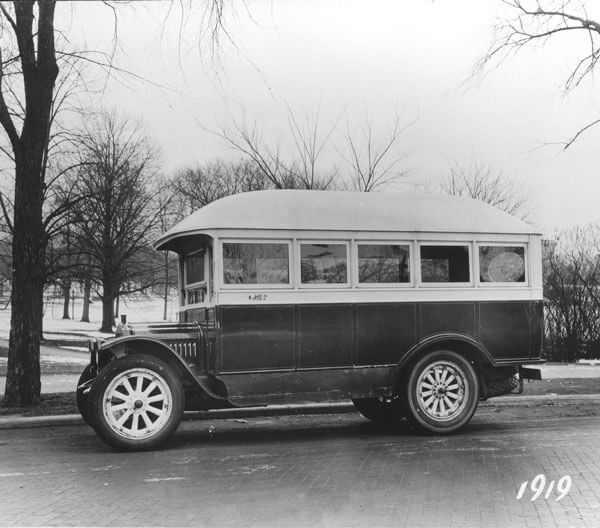
Founded in 1919, Jefferson Lines (then, “Jefferson Highway Transportation Company”) was a pioneer in the motor coach industry, introducing convenience and reliability to public transportation at an affordable price. Jefferson was innovative and resourceful, attentive and generous; ensuring that every move and every decision was strategic, purposeful and best served the public. One of the largest and most successful moves was its purchase in 1925 by Edgar F. Zelle, owner of the Red Bus Line.
Edgar and his new company positioned themselves to create diverse methods of transportation, expand south into Kansas City, and establish themselves as respected partners within the motor coach industry. Much of Jefferson’s credibility was founded upon its ability to innovate and encourage ridership. Its entrance into Iowa opened up miles of travel, changing the “need” of travel into a “desire” to explore beyond Minnesota borders. Jefferson Airways introduced accessibility to air travel and incredibly reduced travel time for doctors and patients visiting Mayo Clinic. Jefferson operated snow plows guaranteed passengers consistent transportation even during the winter months.
By the end of the 20’s, Jefferson was a major state highway partner, second in the industry for motor coach transportation, and an active voice in nationwide legislative discussion regarding bus regulation.

The thirties lead Jefferson into greater innovation and resourceful approaches within transportation. Because of the Great Depression, which lasted until 1939, much creativity was needed to make old buses into new in order to maintain the same reliable and affordable transportation to the growing passenger counts. One of the ways Jefferson met this need was through refurbishing old buses when new were not an option. This ingenuity built a “Great White” fleet of 54A motor coaches designed to maintain the elements of Midwest and long miles south into Kansas City. Through this refurbishing and innovation in maintenance, Jefferson Lines won the Bus Transportation Maintenance Award, presented annually by the magazine of Bus Transportation for completeness and efficiency in maintenance in the Intercity Bus Transportation Division. This would be the first of three consecutive years, Jefferson would win this award.
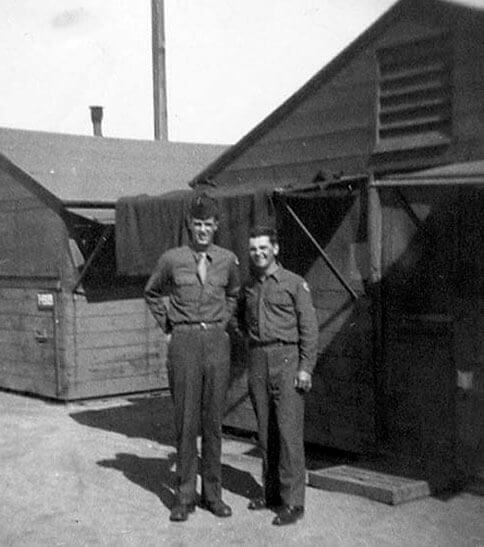
At the start of WWII, Jefferson soon became a major player in military and civilian transportation. With extensive experience supporting the troops with their transportation needs, Jefferson was one of the main motor coach operators to carry soldiers between training camps as they prepped for deployment. Between 1941 and 1943, Jefferson experienced a passenger increase of double, reaching over 1.6 million through 1945. Though bus manufacturing had come to a sudden halt during WWII, a single bus model was permitted by the U.S. government to be built. They were delivered and operated with just primer paint and Jefferson’s company name.

The “American Dream” became a common theme during the 50’s as WWII came to an end and soldiers returned home. With more disposable income, automobile production increased causing passenger counts for interline companies to decline. However, Jefferson saw the opportunity in the United States’ recently completed Highway System and the American desire for travel and vacation when it decided to begin incorporating charter services that toured the country. The additional expansion of Package Express also contributed to Jefferson’s major activity during the fifties.
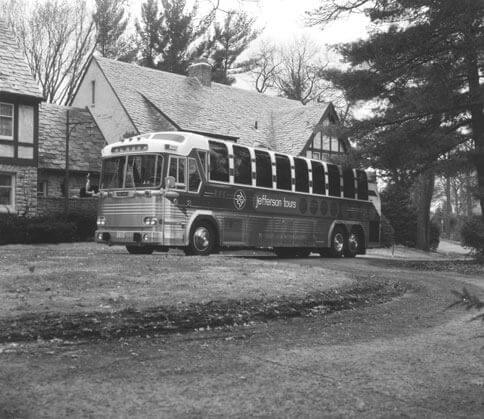
Around the start of the Vietnam War and the United States’ first moon landing, Louis Zelle was becoming President of Jefferson Lines and second generation to run the company. A major company decision was made in 1968 to merge with the Crown Coach Company, extending Jefferson’s routes south into Texarkana. This allowed then recently renamed Jefferson Lines to provide regular route service from South Dakota, Minnesota, and Iowa down to Missouri, Texas and Arkansas.
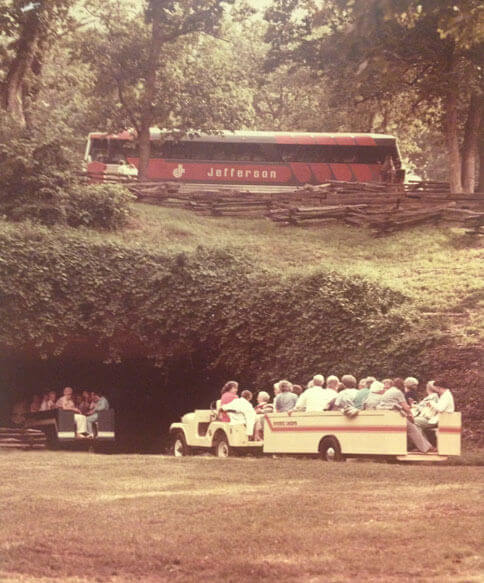
Much of post-World War II’s economic expansion saw a sudden halt during the 70’s as stagnation through recession took place. Inflation reached double digits, and with it came rising gas prices due to a shortage of oil, costing then a now $73 per barrel, and oil-producing nations cutting off supply to larger importers, including the United States. Even though buses had fuel priority, they still saw a decrease in passengers as unemployment grew with the pressing economic times. However, Jefferson used this time as an opportunity to grow and expand its services, launching the Jefferson Professional Driving School, training aspiring drivers as well as student drivers of personal vehicles. Its professional driving school trained over 6,500 drivers and reduced the frequency of avoidable accidents by over half.

Jefferson established the inter-city bus rural feeder system in Central Iowa, increasing ridership and allowing more convenient connections for rural passengers. Shortly after, Charlie Zelle, third generation, assumed role as President of Jefferson Lines and its major operations. He continued to grow Jefferson’s miles and fleet through acquisitions and expansions throughout the south. Jefferson soon purchased Oklahoma Transportation Co. and M.K. & O Lines in addition to extending charter operations into Europe through added air/motor coach tours – which proved to be a huge success. Jefferson’s history in training also continued as 40% of Jefferson drivers were active members of the Million Mile Club where each driver obtained more than one million accident-free miles.
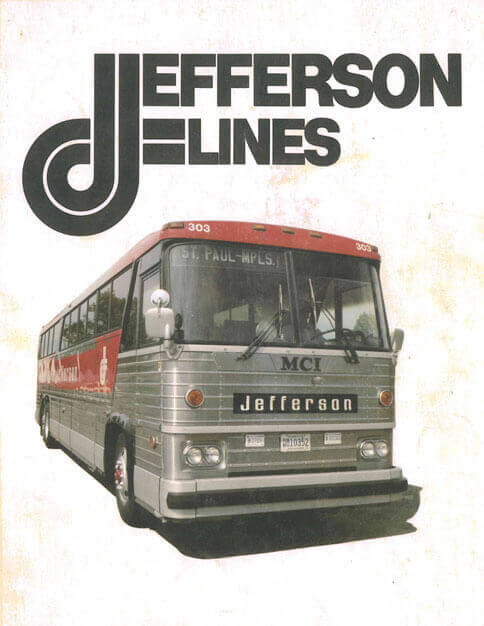
As Jefferson entered the nineties, the company went through a reorganization which set sights on major objectives and future goals of the company. Part of the reorganization was decreasing the bus fleet from 188 buses to 84 and passenger miles from 7 million to 5 million. Despite a decrease in miles and fleet, Jefferson saw a 25% increase in their charter sales, successfully launching them into the next decade.
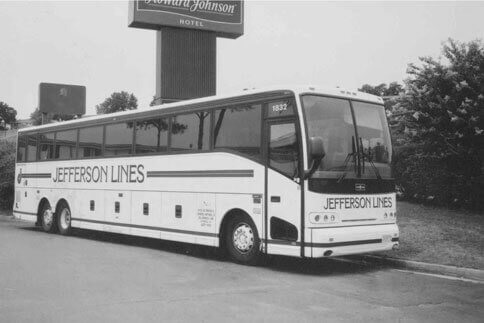
The early 21st century was one of devastation, innovation, and transformation. Just a few short years after the collapse of the World Trade Centers, Hurricane Katrina traveled through Florida and Louisiana causing flooding, damage to homes and infrastructure, and leaving many people to start anew. To aid in support of those impacted by the hurricane, Jefferson Lines gathered numerous volunteers and buses to haul and distribute water.
The growth of online social communities also began emerging, changing the ways people communicate and interpret information around them. This influenced a major shift in marketing and the reality of what was possible and necessary to reach this new young, tech-savvy audience.

After many years of existing in maroon branding, Jefferson Lines made a major shift to red and blue with a newly designed logo. Later would come its updated tagline, “Your #1 Bus Experience,” placing a higher focus and assurance on exceeding passengers’ expectations. In addition to brand growth, Jefferson expanded its service into four major states, increasing passenger mileage by thousands. Idaho, Washington, North Dakota, and Montana soon experienced Jefferson’s #1 bus experience within just a few short weeks after Jefferson received news of their newly acquired routes.
Over the past few years, Jefferson has grown in innovation, convenience, and community outreach; installing free passenger wi-fi on all buses, incorporating its own CDL training school, and training 100% of its employees in Busing on the Lookout (BOTL); a human trafficking awareness program designed to educate and empower employees of the bus industry to recognize and act when signs of human trafficking may be occurring.
We Are Founded On

Reliability

Innovation



